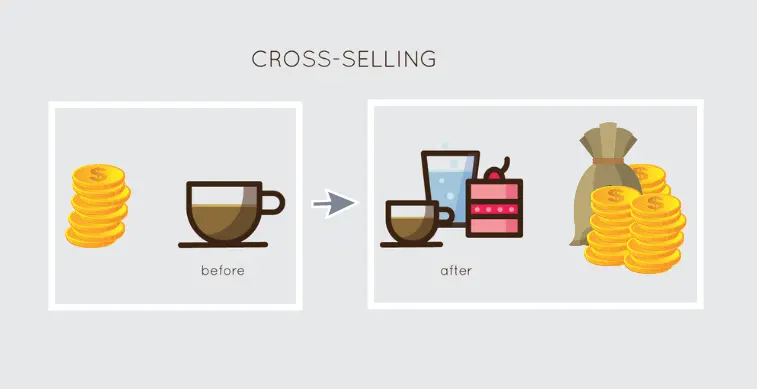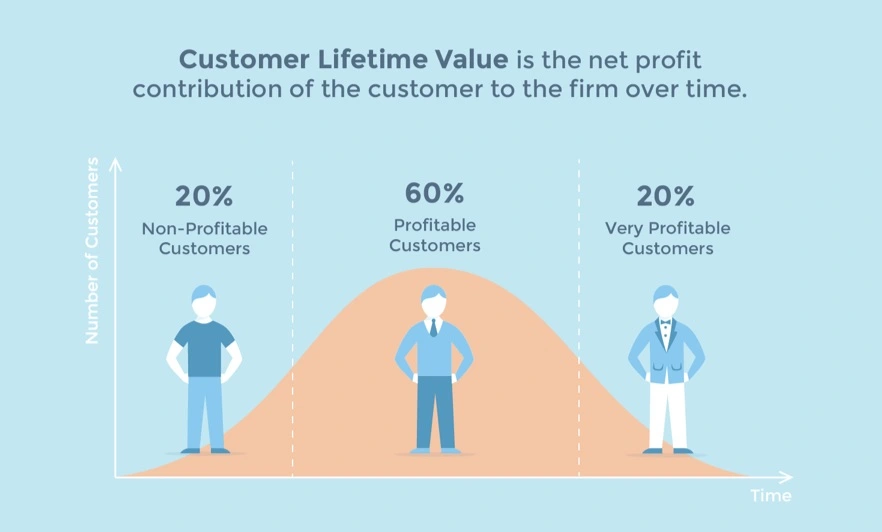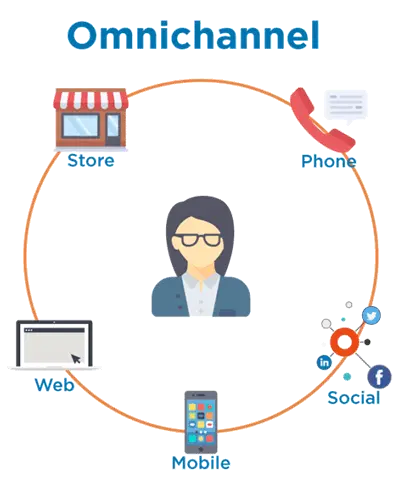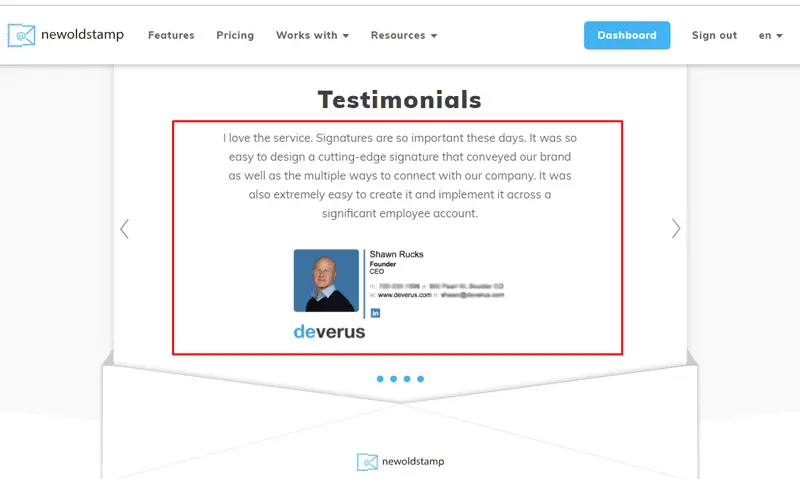How to Identify The Best Cross-Selling Opportunities to Skyrocket Your Monthly Revenue
1. Cross-selling definition
2. Benefits of cross-selling
3. Prepare yourself for cross-selling
4. Define cross-selling opportunities
5. Cross-selling tips
Useful tools:
1. Newoldstamp - Email signature marketing
2. Mailstrom - Tool for cleaning your inbox
3. Reply.io - Personal email outreach, calls, and tasks
4. Mailtrack - Email link opens tracking
5. Shift - Desktop app for streamlining all of your email and app accounts.
According to research conducted by Forrester, 30% of e-commerce revenue is a result of cross-selling and upselling efforts. These two strategies are often used interchangeably, but today we are going to focus on cross-selling techniques and their benefits.
Cross-selling definition
Cross-selling is a strategy where a seller introduces/suggests complementary or better products to customers according to their needs and/or past behavior. For example, suppose, Ms. Johnson already owns a sheep. Cross-selling is when the seller provides her with an option to purchase a haystack.
Benefits of cross-selling
-
Additional revenue
When it comes to benefits, the first thing you need to know is that cross-selling is a huge opportunity because you are selling to existing customers who already know you and trust you. And if your suggestion fits the buyer's exact needs, it will result in more revenue for you.

-
Lower expenses
Lead generation is expensive. According to researches done by Marketing Metrics, you are 14 times more likely to sell to existing customers versus a new customer.
-
Builds stronger relationships with customers
Customers prefer to buy from people whom they trust. If you want to maintain your customer loyalty, learn to listen and hear people, know their needs and desires to determine which of your products/services could help them. Then offer a cross-sell. If you bring value to customers, they will definitely recommend your brand to someone else as well. In such a way you are not only generating leads for your business but also getting the genuine lead referrals. By the way, according to American Express, one satisfied customer will tell nine other people about positive experiences.
-
Increases customer lifetime value (CLTV)
CLTV tells you the predicted revenue a client will generate during their entire relationship with your company. And the longer you can keep the customer, the more profit this customer will bring for your business. When implemented correctly, a cross-selling strategy is one of the most effective ways to increase customer lifetime value.

image source: crealytics
-
Improves customer retention rate
Your ideal customers don’t just buy a product and go away forever. They continue buying from your business. Cross-selling is a fantastic way to make people come back again and again.
Prepare yourself for cross-selling
To get you started, we’ve outlined a list of successful cross-selling tips to follow that you can customize for your business.
Tip #1: Define omnichannel buyer’s journey
Google reported that 90% of users who own multiple devices switch between them up to three times per day to complete a task. This means a customer can interact with your brand online from a computer or a smartphone, by phone, or visit a brick and mortar store. That is why companies should take care of a seamless and consistent experience every time customers interact with their business. Many think that omnichannel marketing is all about giving access to your products and services through various devices like smartphones, PCs or tablets. The truth is it's more about creating a comprehensive shopping experience for your clients, listening and responding to their needs at every step of their buyer journey. Let's look, for example, at OASIS, the UK fashion retailer who successfully combined their e-commerce website, mobile app, and offline stores for easy and pleasant interaction with customers. If you enter any of OASIS stores, you will see consultants having iPads with all the information a client might need. And if you can't find your size or the desired item is out of stock, the consultants will offer their help with ordering the product online. They will quickly deliver the package to your home address. In terms of cross-sales, it is essential to have an omnichannel view of the buyer throughout the journey to be able to present the best offer in any given moment.

image source: catchpr
Tip #2: Review your customers' profiles
By reviewing and analyzing customer profiles, you could minimize the risk of annoying the customer with uninteresting offers.

image source: freepik
Tip #3: Gather behavioral data
The more data you collect on your clients, the better you will understand what they need and be able to target them with appropriate offers. For instance, you can investigate which products people purchase together more often.
Tip #4: “Demarket” customers
What to do with “problematic” customers? Are there customers whose purchases won’t cover the cross-selling costs? When you identify one or more of the four customer types we present below, “demarket” them (limit or terminate the relationship.) There are four customer segments you should avoid cross-selling to as they might be unprofitable for your business:
-
Service demanders
These people often overuse customer service channels, from live chat & email to phone & face-to-face interactions. When they purchase more products or services from you, your costs spent on support rise disproportionally.
-
Revenue reversers
This type of buyers only gives the appearance of generating revenue, because they usually take their money back through returns. The more you sell to them, the more time and money you lose.
-
Promotion maximizers
This segment is known for avoiding regularly priced items. They always want discounts.
-
Spending limiters
These people have a small, limited budget they won't exceed with a given company due to financial issues or because they spread their purchases among several firms.
Define cross-selling opportunities
-
Create a cross-selling map of your products
This will enable you to detect product or service purchase patterns and cross-sell opportunities to increase profit. For example, people are very likely to buy shampoo and conditioner or mask together, so a seller should not put both items on sale at the same time, because the promotion of only one of these products would likely drive sales of another one.
-
Identify white spaces
White space is the gap between the products/services people bought from you and the other products/services that you sell. You can identify the white space by building profiles of similar customers, using characteristics such as gender, age, location, etc. From those profiles, you can see that, for instance, Customer A is very similar to Customer D. However, Customer A bought shampoo and conditioner, and Customer D bought shampoo only. So the conditioner might be the product to fill the “white space.”
-
Work on customers segmentation
Segment your audience into smaller groups to always offer them valuable and relevant products & services.

image source: freepik
-
Work on timing for cross-selling
Many companies attempt to cross-sell at the moment of purchase by recommending complementary items or displaying the products that people most frequently order together. However, this tactic doesn't always work well for all types of businesses. Sometimes a seller needs to wait until the point of client satisfaction before offering a cross-sell product or service. For instance, Mark is a fitness trainer who works with people to help them get in shape. In his case, it's not the best idea to cross-sell vitamin supplements until his clients feel that the workout program is efficient. First, he needs to understand the client's goals, develop a workout program, and assist with execution. Only when he will see that the client's body is responding to the workout plan, he can upsell a nutrition plan. After that, he can cross-sell supplements for even more impact.

image source: freepik
-
Use predictive analysis
Know the products/services that past customers bought in conjunction with one another, time of the year when the purchase has been made, etc. With that data in hand, you can create various bundles relevant to your audience.
Cross-selling tips
We think you want even more useful tips, right? Follow some of the essential rules for efficient cross-selling to your customers.
Tip #1: Offer incentives for product bundles
People love to feel like they are saving cash. Think about running a promotion for those who purchase two or more of your products.
Tip #2: Cross-sell to your email list
Email can be an excellent way to reach your clients directly and offer something they might be interested in buying from you. For example, you might choose to set an autoresponder to reach those customers who abandoned their shopping carts. The abandoned cart email might suggest buying not only the item they wanted to buy during their previous visit but also a bundled version of two or more of your products. Including a well-crafted professional email signature in these emails can add a polished touch, reinforcing your brand and encouraging customers to follow through with their purchase.

image source: reallygoodemails
Tip #3: Add testimonials from customers
Customers trust other customers more than they trust companies. So you can use testimonials of satisfied customers or positive customer reviews to show people how they can use the additional item you are suggesting to achieve their goals.

Tip #4: Start with your best customers
It’s always useful to get in touch with those clients who can provide honest input for you to be able to make improvements. Starting with your most loyal customers is an excellent way to get that feedback.
Tip #5: Add expert recommendations
People often trust each other's feedback and reviews, but they might be even much more willing to listen to experts. That is why it is crucial to cooperate with industry experts and let them test out your products or services. After they provide you with a review, you can put it on your sales and landing pages.
Tip #6: Focus on providing value
One of the most significant things you can do for successful cross-selling is to make sure your customer understands the value of your offer. Publish customer testimonials and reviews, focus on a product's benefits rather than features, use quality content and images.
Conclusion
Cross-selling marketing is beneficial for both, businesses and their customers. Imagine that you offer house cleaning services. Mr. and Ms. Klein hired you because they work a lot and can't keep up with basic household cleaning routine. If you don't let them know that you can also go shopping and walk the dog, they may never get the help they need. By telling them about these related services you offer, you will get a chance to earn more, and your customers will be happy to hire one person instead of three.



